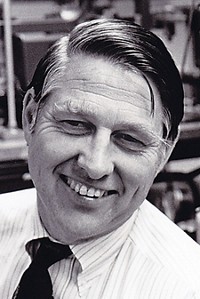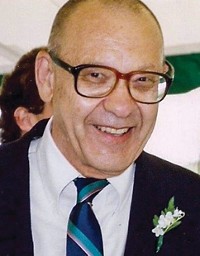Advertisement
Grab your lab coat. Let's get started
Welcome!
Welcome!
Create an account below to get 6 C&EN articles per month, receive newsletters and more - all free.
It seems this is your first time logging in online. Please enter the following information to continue.
As an ACS member you automatically get access to this site. All we need is few more details to create your reading experience.
Not you? Sign in with a different account.
Not you? Sign in with a different account.
ERROR 1
ERROR 1
ERROR 2
ERROR 2
ERROR 2
ERROR 2
ERROR 2
Password and Confirm password must match.
If you have an ACS member number, please enter it here so we can link this account to your membership. (optional)
ERROR 2
ACS values your privacy. By submitting your information, you are gaining access to C&EN and subscribing to our weekly newsletter. We use the information you provide to make your reading experience better, and we will never sell your data to third party members.
ACS News
Ronald Breslow
Columbia University chemistry professor also served as 1996 ACS president
by Stu Borman
October 26, 2017

Ronald Breslow—Samuel Latham Mitchill Professor of Chemistry at Columbia University, 1996 president of the American Chemical Society, and a member of the National Academy of Sciences—died Oct. 25 at age 86 in New York City after a struggle with cancer.
“I’m stunned and very sad,” David R. Reichman, chair of the chemistry department at Columbia, tells C&EN. The loss is particularly shocking for department members because another giant in the chemistry field, Columbia professor Gilbert Stork, died only a few days earlier, noted Reichman in an email message he sent to colleagues this morning.
Breslow was born in Rahway, N.J., in 1931. He earned his bachelor’s and doctorate degrees in chemistry at Harvard University, where he trained with Nobel Prize winner Robert Burns Woodward. He then served as a postdoctoral fellow with another Nobel Prize winner, Sir Alexander Todd at the University of Cambridge.
After Breslow joined the Columbia faculty in 1956, “he was offered an opportunity to return to Harvard with tenure,” Reichman says. When he turned that down, “it was a tremendous boost for chemistry here. He was an amazingly broad and powerful scientist,” not only in organic chemistry, his main field, but also in physical, inorganic, bioorganic, and other areas. Breslow also chaired a committee that was instrumental in transitioning Columbia College from male-only to coeducational in 1983.
“Ron held the highest rank at Columbia University, University Professor, since 1992,” says his Columbia colleague Ann McDermott. “Despite the fact that he was relieved of formal teaching obligations in that role, he chose to teach year after year and was a favorite of freshman.”
His research focused on the design and synthesis of new molecules. He synthesized the cyclopropenyl cation, the simplest possible aromatic system. He also pioneered the concept of antiaromaticity, discovered the mechanism of thiamine in biochemical reactions, did early work in C–H activation, founded the field of biomimetic chemistry, and developed artificial enzymes.
Alumni of Breslow’s group include many noted chemists, including Alanna Schepartz, Samuel H. Gellman, Eric T. Kool, Robert G. Bergman, Virginia Cornish, Michael Varney, and Nobel Prize winner Robert H. Grubbs.
“He was an intellectual giant,” says Schepartz, now a professor of chemistry at Yale University. “Talking with Ronald about science was like a chess match—one where your opponent was always four moves ahead of you. It was frustrating at first but then so much fun. What I remember most vividly was his kindness for his family, his colleagues, and everyone in his group. He lived an amazing life and will be deeply missed.”
“Ron was one of the most visible ACS presidents,” says former ACS executive director Madeleine Jacobs. “He was unique in his ability to talk about the centrality of chemistry to society. Interest in the next generation permeated every talk he gave. The talks were always about the future of chemistry, what we didn’t know, and what the next generation would discover.”
“He was also an incredibly optimistic person,” Jacobs adds. “No matter what his setbacks were, he always forged ahead. That’s one reason he was such a great scientist. His passing is a huge loss for the world of chemistry. I just don’t think we’re going to see another person like him in our lifetime.”
Breslow’s honors include the U.S. National Medal of Science in 1991; the Priestley Medal, ACS’s highest honor, in 1999; the Welch Award in Chemistry in 2003; the Othmer Gold Medal in 2006; and the Perkin Medal in 2010. He is survived by his wife Esther, professor emerita of biochemistry at Weill Cornell Medical College, and their daughters Karen and Stephanie.




Join the conversation
Contact the reporter
Submit a Letter to the Editor for publication
Engage with us on Twitter